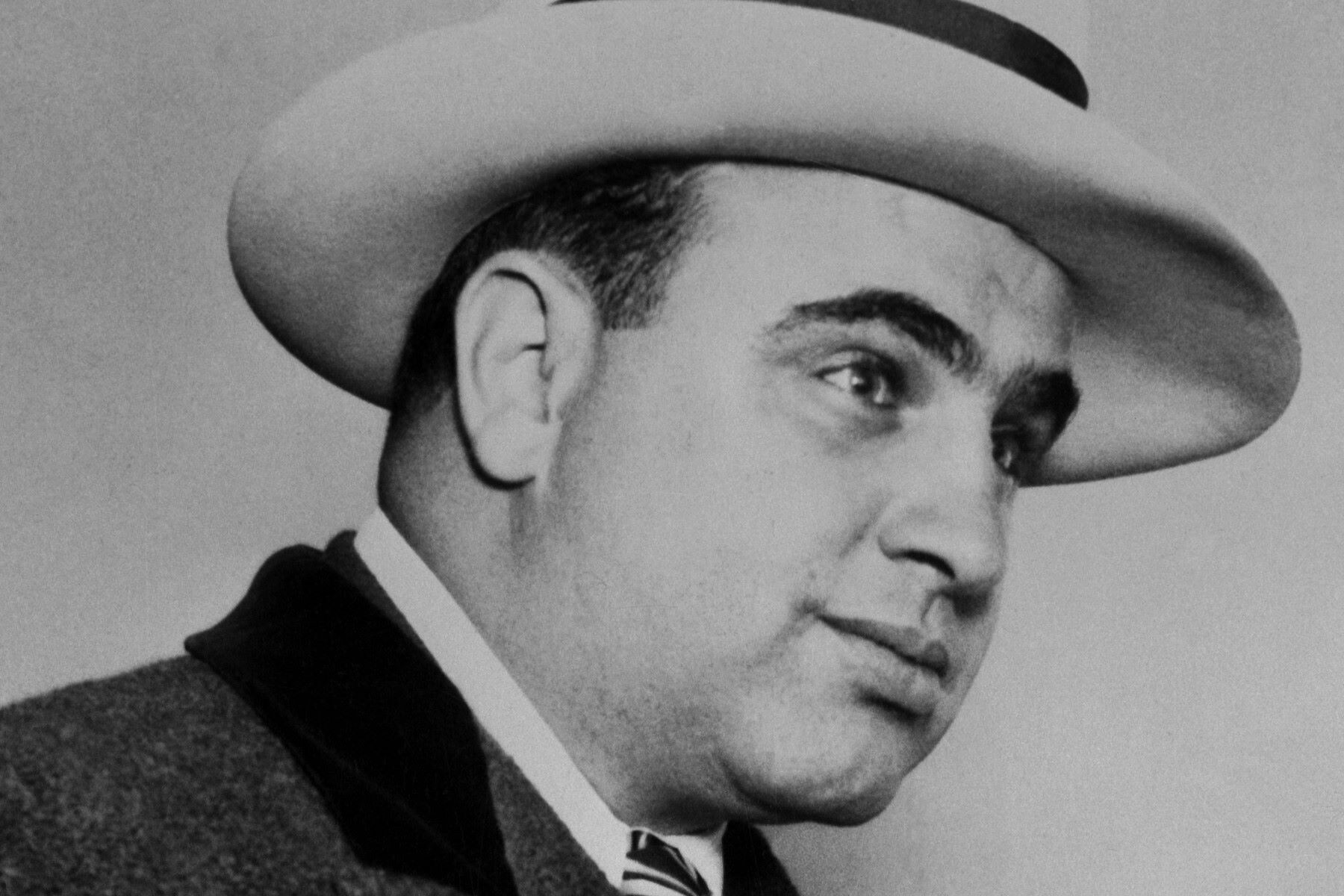
Al Capone, often referred to as “Scarface,” is one of the most notorious figures in American history. Born in 1899 in Brooklyn, New York, Capone rose to prominence during the Prohibition era as a powerful and feared gangster. His criminal empire spanned across the United States, earning him a notorious reputation for his involvement in bootlegging, gambling, and organized crime.
Throughout his life, Al Capone captivated the public’s attention with his flamboyant lifestyle and larger-than-life persona. In this article, we will delve into 16 intriguing facts about Al Capone, shedding light on his criminal activities, personal life, and lasting impact on popular culture. From his rise to power to his ultimate downfall, Capone’s story is both captivating and controversial.
So, let’s dive in and uncover some fascinating details about one of the most infamous figures in the annals of American crime!
Key Takeaways:
- Al Capone, a notorious gangster from the Prohibition era, was known for his cunning manipulation and extravagant lifestyle, leaving a lasting legacy in popular culture.
- Despite his criminal activities, Al Capone had a passion for opera and contributed to charitable causes, showcasing a complex and multifaceted personality.
Al Capone was born on January 17, 1899, in Brooklyn, New York.
Known as one of the most notorious gangsters in American history, Al Capone’s life began in Brooklyn, where he grew up in a working-class Italian immigrant family.
He gained notoriety as a mobster during the Prohibition era.
During the Prohibition era in the 1920s, Al Capone rose to power as the leader of the Chicago Outfit, an organized crime syndicate involved in smuggling and bootlegging.
Al Capone’s nickname was “Scarface.”
Al Capone earned the moniker “Scarface” after he was involved in a fight where he was slashed across the face, leaving him with a prominent scar.
He was convicted and sentenced for tax evasion.
Despite being suspected of various crimes, Al Capone was ultimately convicted and sentenced for tax evasion in He served most of his prison sentence in Alcatraz.
Al Capone was a master of manipulation.
Known for his strategic thinking and cunning personality, Al Capone was able to manipulate both his rivals and the public to maintain his criminal empire.
He became a symbol of the Roaring Twenties.
Al Capone’s extravagant lifestyle and involvement in organized crime made him a symbol of the Roaring Twenties, an era of economic prosperity and social change.
Al Capone was responsible for the Saint Valentine’s Day Massacre.
One of the most infamous events associated with Al Capone was the Saint Valentine’s Day Massacre. In 1929, seven members of a rival gang were brutally murdered in Chicago.
He had a secret underground tunnel system.
In order to evade law enforcement, Al Capone had an extensive network of tunnels built beneath his residence in Chicago. These tunnels provided him with discreet access to various locations.
Al Capone had a fascination with the opera.
Despite his criminal activities, Al Capone was known to have a passion for opera. He even had a private box at the Lexington Opera House in Chicago.
His reign as a mob boss was eventually brought down by FBI agent Eliot Ness.
Eliot Ness and his team of “Untouchables” relentlessly pursued Al Capone, eventually gathering enough evidence to prove his illegal activities and bring him to justice.
Al Capone’s favorite drink was whiskey.
Whiskey was Al Capone’s beverage of choice, and he often enjoyed it at his favorite bars and speakeasies in Chicago.
He was philanthropic in his community.
Despite his criminal activities, Al Capone was known to contribute to charitable causes, especially those that supported the less fortunate in his community.
Al Capone was a shrewd businessman.
Besides his involvement in organized crime, Al Capone also ventured into legitimate businesses, including restaurants, nightclubs, and gambling establishments.
He was released from prison for medical reasons.
Al Capone’s deteriorating health due to syphilis led to his early release from prison, and he spent his remaining years in Miami, Florida.
Al Capone died on January 25, 1947.
After his release from prison, Al Capone’s health continued to decline, and he passed away in his home in Florida at the age of 48.
His legacy continues to captivate popular culture.
Al Capone’s larger-than-life persona and notorious criminal activities have cemented his place in the annals of popular culture. He remains a subject of fascination in books, movies, and television shows.
Conclusion
In conclusion, Al Capone remains one of the most intriguing figures in history. His rise to power as a notorious gangster, his control over the illegal alcohol trade during the Prohibition era, and his involvement in organized crime have captured the imagination of people for decades. Capone’s lavish lifestyle, ruthless behavior, and ability to avoid conviction for major crimes have solidified his place in popular culture as an iconic figure.Despite his notorious reputation, it’s important to remember that Al Capone was a complex individual. He had both loyal supporters and bitter enemies, and his impact on society and the criminal underworld cannot be understated. To this day, his name symbolizes a bygone era of gangsters and illicit activities.Whether you’re a history buff, a fan of true crime stories, or simply interested in the complexities of human nature, delving into the life and legacy of Al Capone is an intriguing journey that offers plenty of twists and turns along the way.
FAQs
Q: Was Al Capone the most notorious gangster of all time?
A: While Al Capone is certainly one of the most famous gangsters in history, whether he was the most notorious is subjective. Other gangsters such as John Dillinger, Bonnie and Clyde, and Lucky Luciano also achieved considerable notoriety during the same era.
Q: How did Al Capone gain his power?
A: Al Capone gained his power through his involvement in organized crime, specifically through his control over the illegal alcohol trade during the Prohibition era. By supplying speakeasies and building a vast criminal empire, Capone amassed great wealth and influence.
Q: Did Al Capone ever go to jail?
A: Yes, Al Capone was sentenced to jail on charges of tax evasion. In 1931, he was convicted and sentenced to 11 years in prison. Despite his involvement in various criminal activities, it was ultimately his failure to pay taxes that led to his downfall and imprisonment.
Q: What impact did Al Capone have on society?
A: Al Capone’s impact on society was significant. He was a symbol of organized crime during the Prohibition era and his rise to power showcased the corruption and violence that permeated American society at the time. His notoriety also influenced the public’s perception of law enforcement and the need for stronger crime-fighting initiatives.
Q: Are there any movies or TV shows about Al Capone?
A: Yes, there have been several movies and TV shows that portray or are inspired by Al Capone. Some notable examples include “The Untouchables” (1987), where he was portrayed by Robert De Niro, and the TV series “Boardwalk Empire” (2010-2014), where he was portrayed by Stephen Graham.
Al Capone's life story has captivated audiences for generations, inspiring countless books, movies, and TV shows. Fans of the iconic gangster may enjoy learning more about the classic film "The Untouchables," which dramatizes Capone's downfall at the hands of federal agents. Those curious about Capone's family legacy might be interested in exploring the life of his great-nephew, "The Dominator" Dominic Capone, who has made a name for himself as a successful businessman and reality TV star. Whether you're a history buff or just love a good story, there's always more to discover about the endlessly fascinating world of Al Capone.
Was this page helpful?
Our commitment to delivering trustworthy and engaging content is at the heart of what we do. Each fact on our site is contributed by real users like you, bringing a wealth of diverse insights and information. To ensure the highest standards of accuracy and reliability, our dedicated editors meticulously review each submission. This process guarantees that the facts we share are not only fascinating but also credible. Trust in our commitment to quality and authenticity as you explore and learn with us.


